Lab Members
Dennis E. Slice, Ph.D.

My scientific background is in Marine Biology, and Ecology and Evolutionary Biology. I received my B.Sc. in Marine Biology in the Department of Biology at the College of Charleston in 1984 and my Ph.D. in the Department of Ecology and Evolution at the State University of New York at Stony Brook (now Stony Brook University) in 1993. Throughout both my undergraduate and graduate career, I was heavily involved in the development of computer applications for scientific research. At Stony Brook, I began working on morphometric problems with F. James Rohlf and have been working in this area ever since. In addition, I have had the great honor of being a guest professor in the Department of Anthropology at the University of Vienna, Austria since 2000. My research usually involves the identification of problems of individual researchers in specialized fields and the development of general methods to solve those particular problems and the incorporation of those methods into software for general distribution and use. This has led to my collaborating with leading researchers in such fields as forensics, orthodontics, evolutionary biology, biomedical engineering, paleoanthropology, evolutionary psychology, industrial hygiene, and marine biology, just to name a few.
Kathryn O'D. Miyar, Ph.D.

Kathryn O'D. Miyar began her college education as a classically trained pianist pursuing a degree in piano performance at the Cincinnati Conservatory and later at the University of Miami. During the third year of her undergraduate education she began a second major in anthropology. Miyar went on to receive an M.A. in physical anthropology at Florida Atlantic University in 2007 and later received her Ph.D. from Florida State University in 2012.
Miyar's interests include bioarchaeology, paleopathology, epidemiology, dental anthropology, epigenetics, isotopic analysis, and geometric morphometrics.
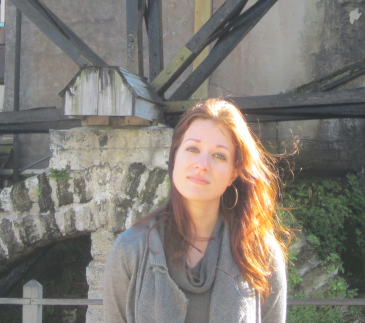
Detelina Stoyanova, Ph.D.
Detelina Stoyanova is a computational scientist whose specialty lies in shape analysis and visualization. She received a Ph.D. in Computational Science from Florida State University in 2015. She is currently a postdoctoral associate at the Department of Scientific Computing at Florida State University and a part-time faculty at the Mathematics and Statistics Department at the University of North Carolina at Charlotte. Detelina is working on developing computational techniques for age-at-death estimation using 3D laser scan data of the human pubic symphysis.
Her interests include morphometrics, scientific visualization, linear algebra and forensic anthropology.

Jieun Kim, Ph.D.
Jieun is a biological anthropologist whose specialty lies in human skeletal biology and its application to forensic anthropology and bioarchaeology. She received a Ph.D. in biological anthropology from the University of Tennessee, Knoxville in 2016. Her doctoral dissertation investigated the extent of population variation (if it ever exits) in skeletal aging process using Southeast and East Asian populations, and sought to develop a more inclusive age-at-death estimation method that is broadly applicable to Asians. To complete her fieldwork abroad, she was awarded the Wenner-Gren Foundation Doctoral Dissertation Fieldwork Grant, the W. M. Bass Endowment and W. Leitner Award offered by the Forensic Anthropology Center, UTK, and the W. K. McClure Scholarship for the Study of World Affairs, UTK. She has been working with skeletal remains in Korea, Japan, Thailand and the U.S., and as a part of the National Institute of Justice postdoctoral research, is currently building 3D laser scan data on those populations to extend the applicability of the fully computation age estimation methods to more diverse populations.

Benjamin Pomidor, M.Sc.
I received my bachelor's degrees in Biomathematics and Physical Science from FSU in the spring of 2011. Classes I'd taken in the department of Scientific Computing led to my application and acceptance to the graduate school, where I began in the fall. After taking the Geometrics Morphometrics course, I began working with Dr. Slice on a morphometrics-oriented implementation of the ICP algorithm.
My main interests are data mining, BSP-trees, morphometrics, and game design.
Cameron Berkley, B.Sc.
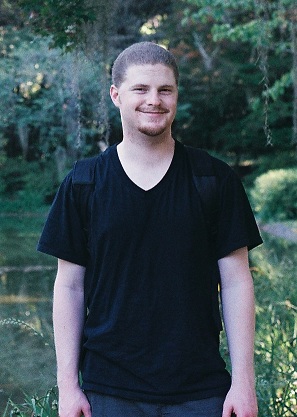
I'm Cameron Berkley and I grew up by the beach in Jacksonville, Florida. In 2010 I transferred from Florida State College at Jacksonville to Florida State University as a Computer Science and Applied Math major. Here I took Dr. Slice's Intro to Scientific Computing course and was convinced the Department of Scientific Computing was the ideal place for me. I recently graduated and I have begun my first year as a Masters student.
I am interested in honing my craft as a programmer while working on interesting and challenging problems in scientific computing. I am currently developing software to correct asymmetric lens distortion in photographs.
Stephen Townsend, B.Sc.

My name is Stephen Alexander Townsend but I usually go by Alex. I was born in Tallahassee but I spent most of my life in Saint Augustine. I moved back to Tallahassee to attend FSU where I majored first in Environmental Science. Eventually I found that I was very interested in computer modeling, software development and applications of computational methods for the sciences. As such, I chose to add Computational Science as a second major. In 2013, I took Dr. Slice's Geometric Morphometrics class where I learned methods and tools which are applicable far and wide across disciplines. During the semester, Dr. Slice invited me to do research with him which is what brought me to the Morphometrics Lab. I plan to graduate in 2015 with two degrees and then attend graduate school. I hope to pursue a career in research.
My list of interests tends to get longer with each passing year but currently include signal processing and spectrographic analysis, geometric morphometrics, computational methods in environmental health and atmospheric sciences, computational methods in genetics and genomics, computational and historical linguistics and applications of artificial intelligence and machine learning in science and engineering.
Devin Geraci, B.Sc.
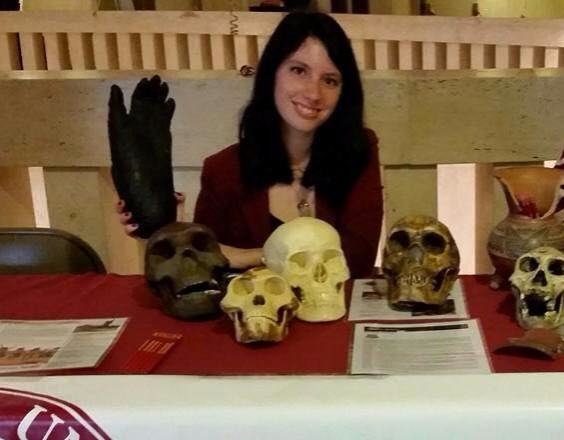
Devin Geraci graduated from the FSU Department of Anthropology in 2016 with a BS in Anthropology and a minor in Art History. Her interests include forensic anthropology, human osteology, and zooarchaeology. She has completed field work in California, where she was a part of a team excavating unidentified human remains from a cemetery to take DNA samples and hopefully confirm a positive identity. During the Spring 2016 semester she began a DIS project to create an online faunal skeletal database. For the DIS project, she macerated and began laser scanning skeletal remains of an opossum. Once the entire skeleton is scanned, the pieces will be digitally re-articulated to create a complete 3D model. She plans on continuing this project and expanding it to include other species. She is a mentor in the 2016 Young Scholars Program and is assisting the students in scanning the remains of an otter. Devin intends on pursuing both a MA and PhD.
Marcelina Nagales
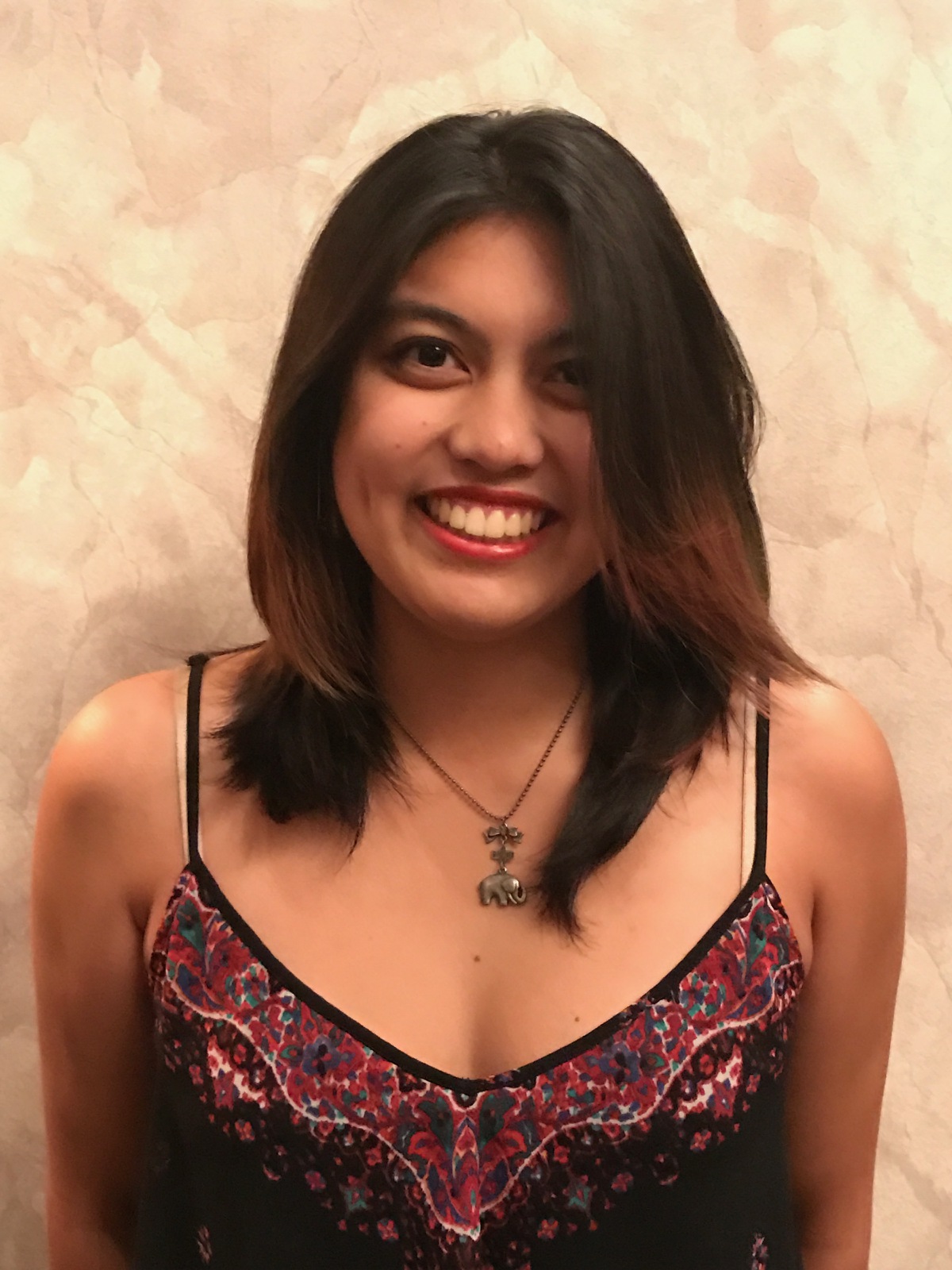
Marcelina is an undergraduate from the Department of Scientific Computing expecting to graduate in Spring of 2017 with a BS in Computational Science. She originally applied to Florida State University as a Computer Science major but has found her passion through the research she has done with Dr. Slice and Alexa Pennavaria. She has contributed to the research project focused on scanning archaeological projectile point/knives and constructing a database of typologies.
Her current interests include forensic anthropology and she hopes to pursue this after graduation through a MS in Computational Science with a focus on Forensic Anthropology.
Seth Boren, M.A., M.S.
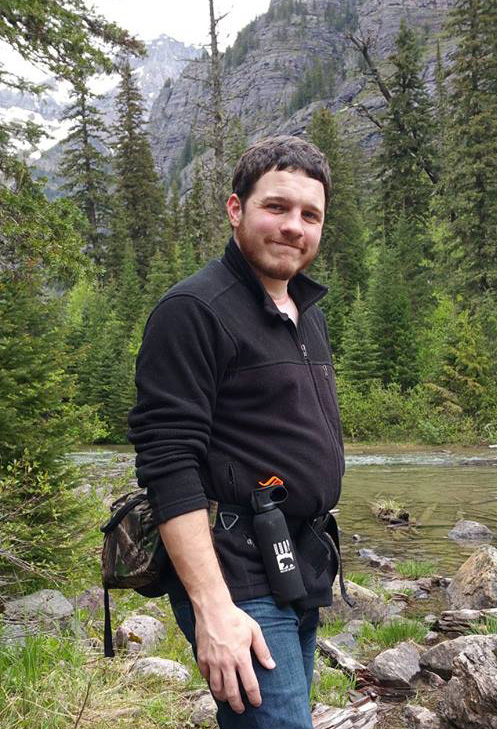
I am an archaeologist by trade and have over a year's worth of field experience to date. I received a MA in Anthropology from the University of Arkansas in 2014 and a MS in Scientific Computing from Florida State University in 2017. During my time at FSU I created 3D models of mandibles taken from the Windover Collection. I used said 3D models as part of a morphometric analysis of archaic period mandibular morphology. My current interests include human evolution and the ways that computers can be used to improve archaeological analysis. In the future I plan to do further studies of archaic period North America and possibly evolutionary studies of primate morphology.
Members Emeriti
K. James Soda, Ph.D.

I am originally from Monument, Colorado. In 2009, I received my Bachelor's of Science in Biology with a Marine Emphasis from Western Washington University, and in 2011 I received a Master of Arts in Biology from State University of New York-Stony Brook's Ecology and Evolution Department. My Masters work focused on the mathematical relationship between metabolic rates and body size in various lineages of animals and whether factors such as life span and dimensional scaling influence this relationship.
My current research interests center on mathematical and statistical applications to ecology and evolution. Currently, I am working to developing quantitative methods for identifying individual shark teeth using geometric morphometric data, artificial neural networks, and other statistical classification methods.
Thomas Campbell Arnold, B.Sc.

Currently a graduate student in the Bioengineering department with an emphasis on medical imaging at the University of Pennsylvania.
My full name is Thomas Campbell Arnold, but in an effort to preserve my maternal linage I go by Campbell. I was born in Pensacola, Florida and moved to Tallahassee in 2011 to attend Florida State University. I entered as a Biological Science major, but have since found I am more interested in chemistry and computational science. I plan to graduate in 2014 and pursue graduate school followed later by a career as a research scientist.
My interests as an undergraduate are subject to swift changes; however, at this time they include running bio-mechanics, computer modeling, and large scale data acquisition/analysis. I plan to begin working on an undergraduate thesis in the lab of Dr. Slice; the focus will be the relationship between foot shape and running ability.
Alexa Pennavaria, B.Sc.

When in the Morph Lab, Alexa Pennavaria was an Anthropology major and Museum Studies minor, as well as an URCAA and Benjamin A. Gilman award recipient. Her research focused on 3D scanning archaeological projectile point/knives which will be used in a subsequent database. In the FSU Anthropology Department, she performed research on humeral trochlear angles and their potential as a determinant of biological sex. Currently she is a Ph.D. student in the Structural Anatomy and Rehabilitation Sciences (SARS) program at the University of North Texas.
2016 FSU Young Scholars Program
Sabrina Chen
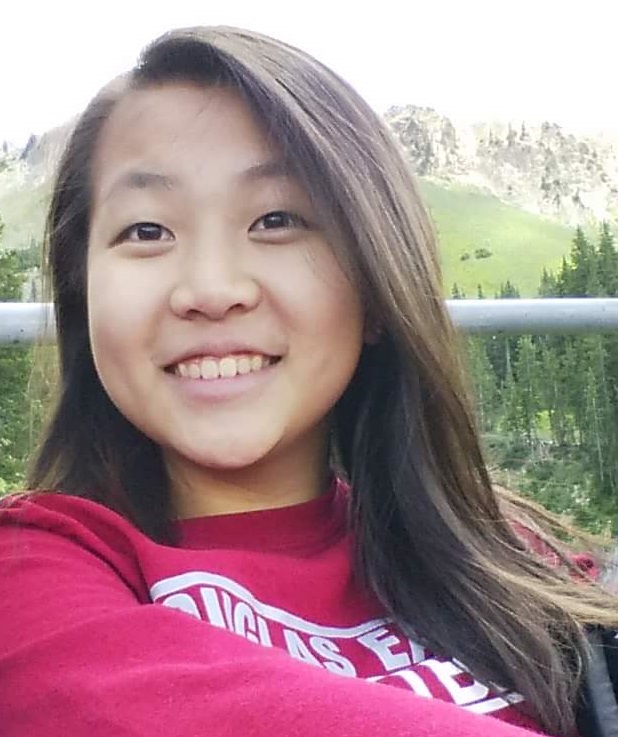
My name is Sabrina Chen and I am originally from Parkland, Florida. I am currently attending Marjory Stoneman Douglas High School as a rising senior, graduating in 2017. I joined the Department of Scientific Computing at FSU while attending the Young Scholars Program of 2016. During my time at FSU, I took three classes on Mathematical Models, the computer programming language of Python, and the Human Genome, while completing an individual research project in the scientific computing department.
My main interests include biomedical engineering and law, although after participating in YSP, I may have an interest in morphometrics.
Swarnima Radhakrishnan
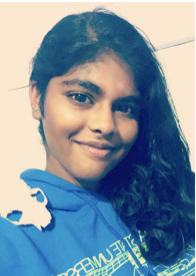
Hi! I am Swarnima Radhakrishnan, a participant in the Young Scholars Program for the year 2016. I am a current high school senior attending Miramar High School, in Miramar, Florida. I enjoy learning anything new, but my main interests are in the field of mathematics. I am unsure of what my future aspirations are but I am looking forward to exploring different paths until I find one!
